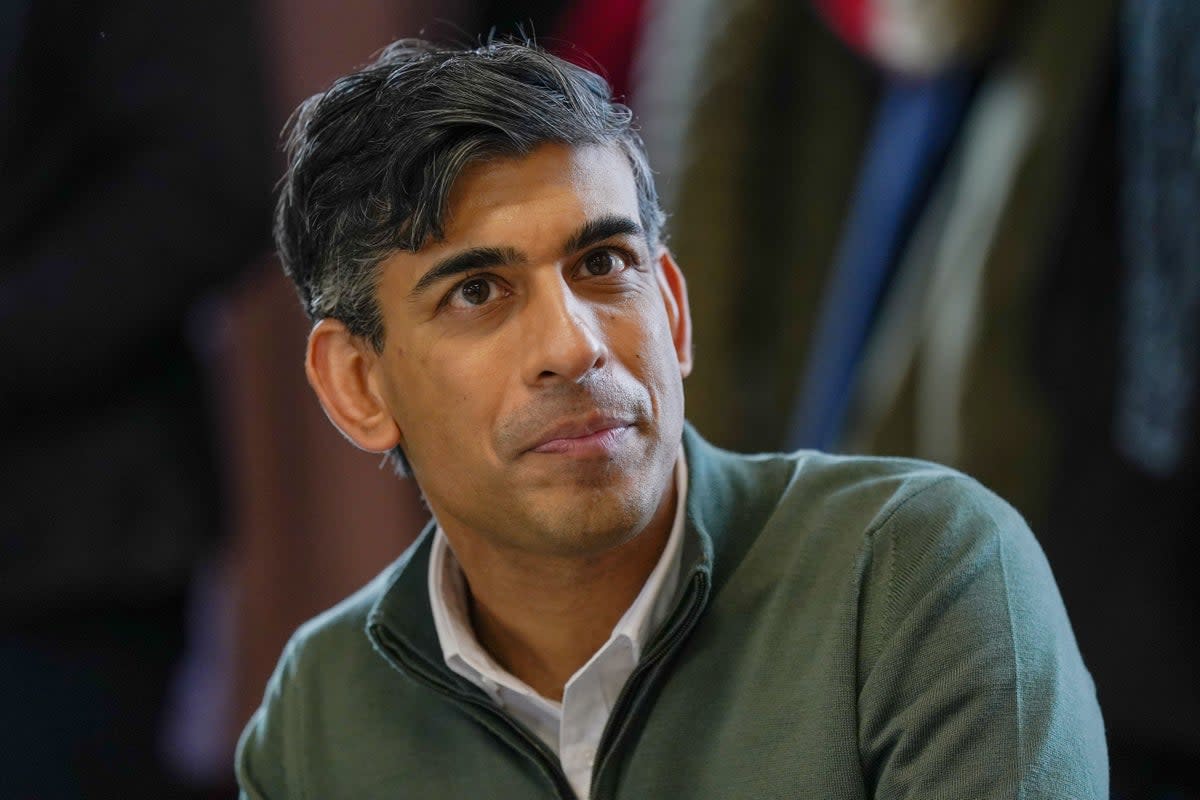Rishi Sunak visits Northern Ireland to mark the return of power-sharing

Rishi Sunak has visited Northern Ireland to mark the return of devolved government.
He said Stormont’s focus should be now be on “delivering for families and businesses across Northern Ireland” now that power-sharing has been restored.
Mr Sunak added that a £3.3 billion funding package for the region would lead to sustainable public services.
The institutions were restored after a deal between Mr Sunak’s government and the DUP to allay unionist concerns over post-Brexit trading arrangements.
On Thursday the Government fast-tracked two pieces of legislation contained in the agreement through the House of Commons, opening the way for Saturday’s return of the Assembly.
The Prime Minister will be at Stormont on Monday, where he will meet Michelle O’Neill and Emma Little-Pengelly, the leaders of the new executive.
Irish premier Leo Varadkar will also be at Stormont for a series of meetings.
Sinn Fein’s Ms O’Neill made history on Saturday when she became Northern Ireland’s first nationalist First Minister, as the Assembly returned after two years in cold storage.
Mr Sunak will carry out a number of community engagements during his visit, meeting people involved in public services.
On Sunday he visited the headquarters of Air Ambulance Northern Ireland in Co Antrim.
The Prime Minister said: “It is great to be back in Northern Ireland this evening, a special part of our United Kingdom.
“In the last few days we have made significant progress towards a brighter future for people here.
“Yesterday the Assembly sat for the first time in two years. Tomorrow the Executive will meet.
“Tonight I have been meeting with volunteers and the crew at the Air Ambulance.
“It is people and services like this, and many more, that the Executive can now focus on, delivering for families and businesses across Northern Ireland.
“And with the new deal that we have agreed, they will have both the funding and the powers to do exactly that.”
Stormont parties have indicated that they will press Mr Sunak for more funding to alleviate the pressure on public services in Northern Ireland.
But the Prime Minister said the offer from the UK Government represents “a generous and fair settlement”.
He added: “And crucially, it is sustainable.
“It is about ensuring public finances in Northern Ireland are sustainable for the long term. That approach we have taken, I think, will really benefit everyone here.
“And now that we have got the Executive back up and running, it is right that people have their local politicians focusing on their priorities, starting with public services.
“There has not been devolved government up and running here for far too long. But now we do have it and they can start focusing on delivering for everyone.”
Mr Sunak was asked about comments by Ms O’Neill predicting there could be a border poll on Irish unity within the next decade.
He said: “Obviously, everyone is committed to the Belfast Good Friday Agreement.
“But I think everyone also agrees that now is the time to focus on delivering on the day-to-day issues that matter to people, to families, to businesses in Northern Ireland.
“It has been without a devolved government here for two years. It is time to focus on things like public services. That is what everyone would expect.
“In fact everyone I was talking to this evening was telling me that that is exactly what they want from their government now that it is up and running again.
“Our deal ensures that the Executive will have the powers and the funding it needs to deliver for people.”
The new Executive will hold its first meeting on Monday.
Ms O’Neill told the PA news agency that it will need to begin work immediately on tackling public sector funding challenges.
She said: “I am determined to do our very best.
“This place has been starved of public services funding for over a decade because of the Tories in London, we can do much better than that.
“That’s a fight I think we have to fight together and I think there’s a combined effort across the Executive to have a proper funding model for here so we actually can do better public services and invest in the public sector workers.”


